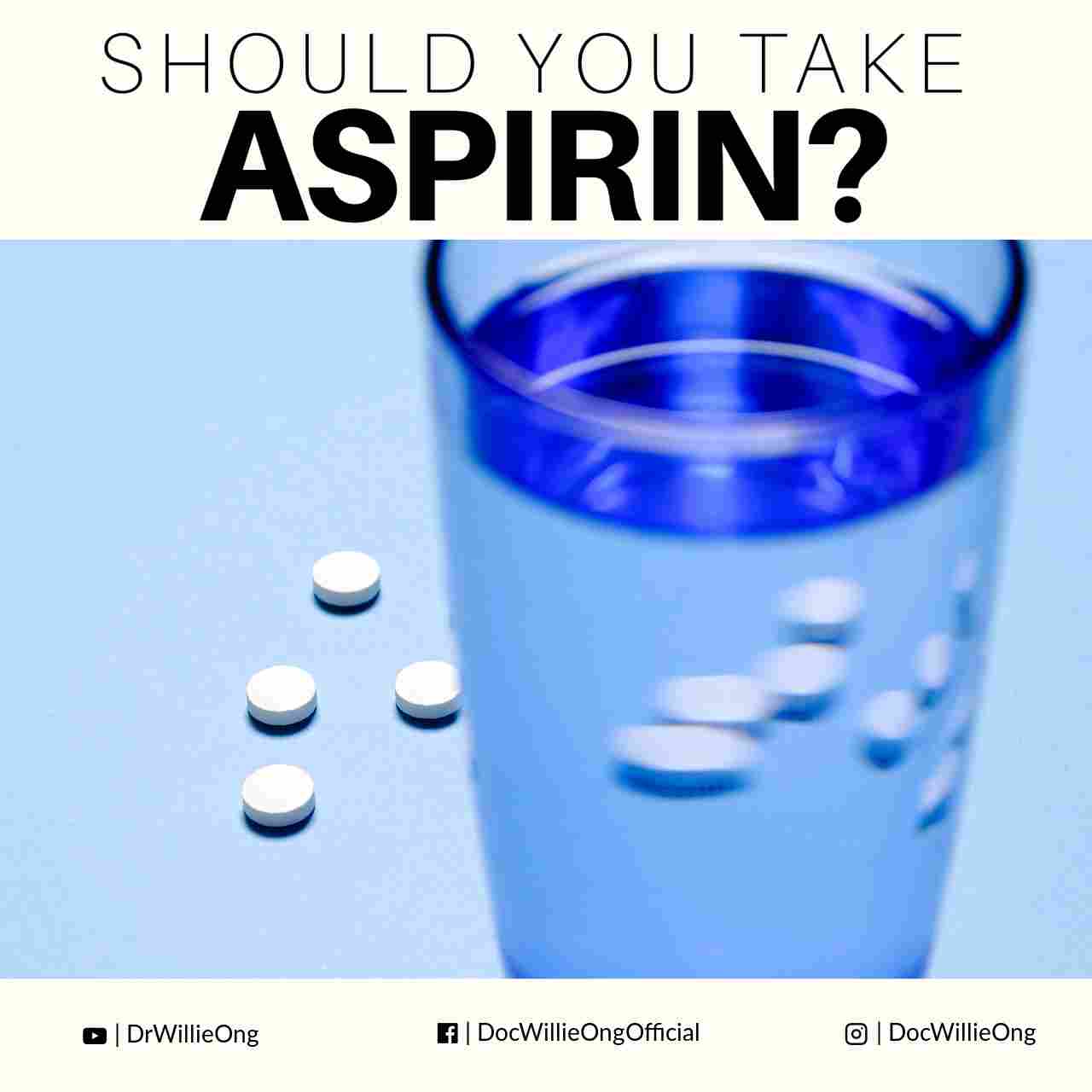By Dr. Willie Ong
Q. I’m 38 years old and healthy. I exercise 3 times a week. I read about the benefits of aspirin in the internet. I’m thinking if I should take it? (Jed)
A. Aspirin is indeed a wonderful drug and it have been shown to prevent heart attacks and stroke. However, not every person will benefit as much from it. There’s more to taking aspirin than meets the eye.
Did you know that an American doctor recently warned against the over-the-counter use of aspirin, saying there is great potential for abuse? And it is here that we must carefully weigh the benefits and risks of taking aspirin.
Who Will Benefit From Aspirin?
If you fall in the category of a middle-aged male with heart disease (blockage of the arteries), then you need to take aspirin. Those with strokes, diabetes and high cholesterol may also need aspirin. But for the healthy and the young, the risks may be more than the benefits.
Dangers of Aspirin Intake
First, aspirin or acetylsalicylic acid is really an acid. It can erode the lining of the stomach and cause serious bleeding. Dr. Virgilio Banez, a fellow of the Philippine Society of Gastroenterology, believes that Asians may be more prone to bleeding ulcers from aspirin as compared to Caucasians. There has even been a report of a single aspirin tablet perforating the stomach!
Another potentially fatal side effect is brain hemorrhage or bleeding in the brain. Aspirin is a blood thinner and interferes with the normal clotting mechanisms of the body. It can cause bleeding and bruises. That is why doctors advise their patients to stop taking aspirin for 7 days before a surgical or dental operation. And on rare occasions, there are those allergic to aspirin.
Benefits of Aspirin
Hopefully, I haven’t scared you that much with the risks mentioned. Now, let’s look at the health benefits. Aspirin has been proven time and time again to prevent heart attacks and strokes. Recently, studies suggest that aspirin may also prevent some cancers of the intestine. And its greatest advantage of course is the affordable cost, only 1 to 2 pesos per tablet.
The Final Judgment
In a reputable combined analysis (called meta-analysis). All of the positive and negative aspirin data published in the last century. Doctors came up with the following recommendations:
- It is beneficial for patients who have suffered a heart attack or a stroke.
- It is beneficial for patients with diabetes, heart disease, high cholesterol levels and those with controlled high blood pressure.
- Aspirin is harmful for patients with peptic ulcer disease, gastritis and aspirin allergy.
Now, if you fall somewhere in-between the above categories, then the merits of aspirin intake are less certain. It is safer to consult your doctor first.
What Dose of Aspirin To Take?
Years ago, aspirin was given as high as 1,600 mg per day while more recent studies suggest that a dose as low as 30 mg may already provide heart protection. For the average patient, 80 to 100 mg of aspirin is the usual dose. In the end, your doctor may prescribe higher or lower doses depending on your risk factors.
Alternatives To Aspirin
Ginkgo biloba has a blood thinning effect similar to aspirin. The ornamental tree Ginkgo biloba came from China thousands of years ago. It has been reported in scientific journals to enhance blood circulation. To increase oxygen supply to the brain and heart. However, Ginkgo and aspirin do not add up well because the combination of these drugs may cause internal bleeding.
Another alternative to aspirin is the drug clopidogrel. The reputation of this drug is quite good and it is less irritating to the stomach. However, the drug is expensive at P40 per tablet.
In conclusion, Jed, I think you’re alright. No need to take aspirin for the moment and just continue with your healthy lifestyle. And it’s nice to thank God once in a while for the great gift. He gave to many of us including you – the gift of good health.



